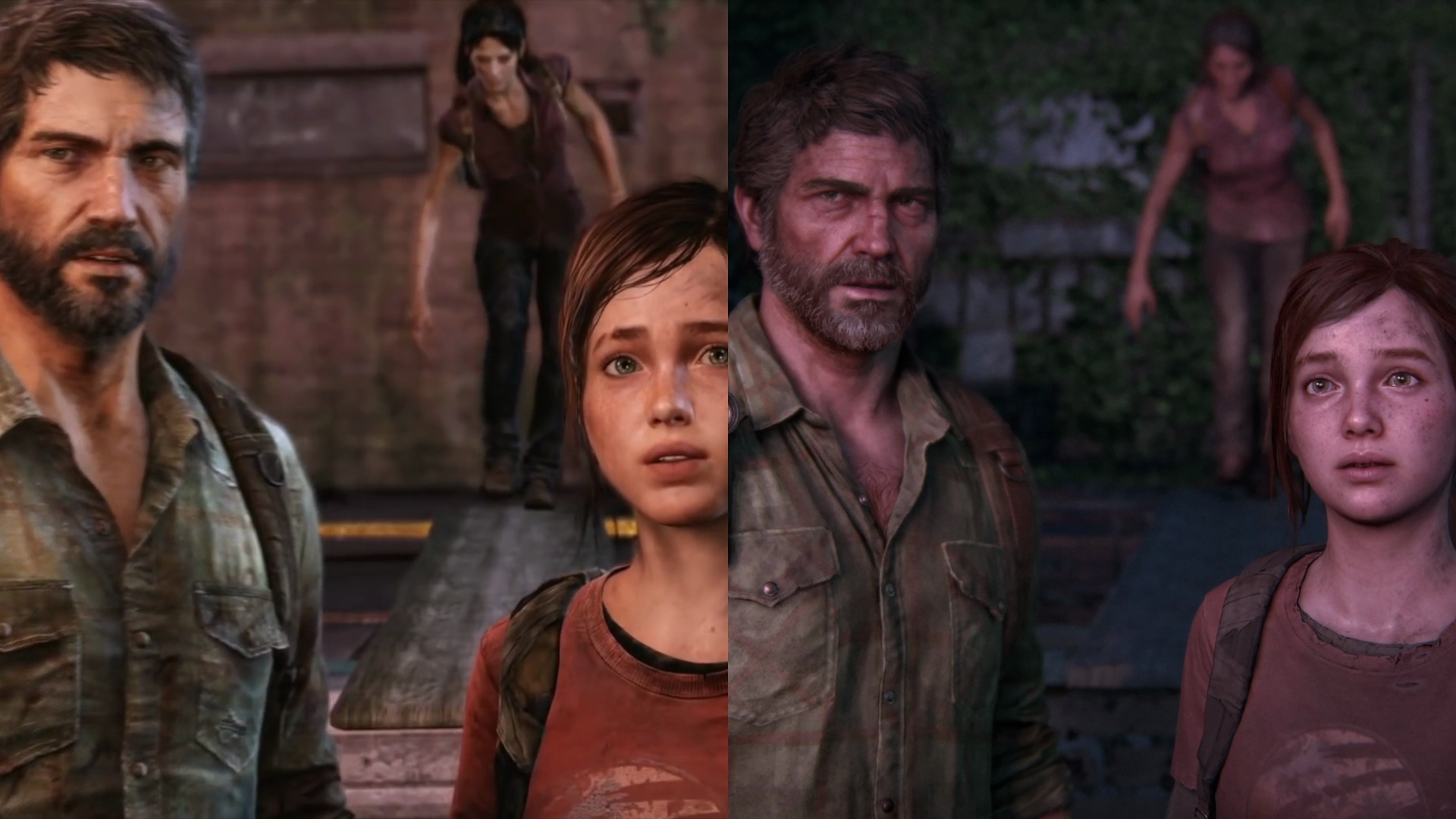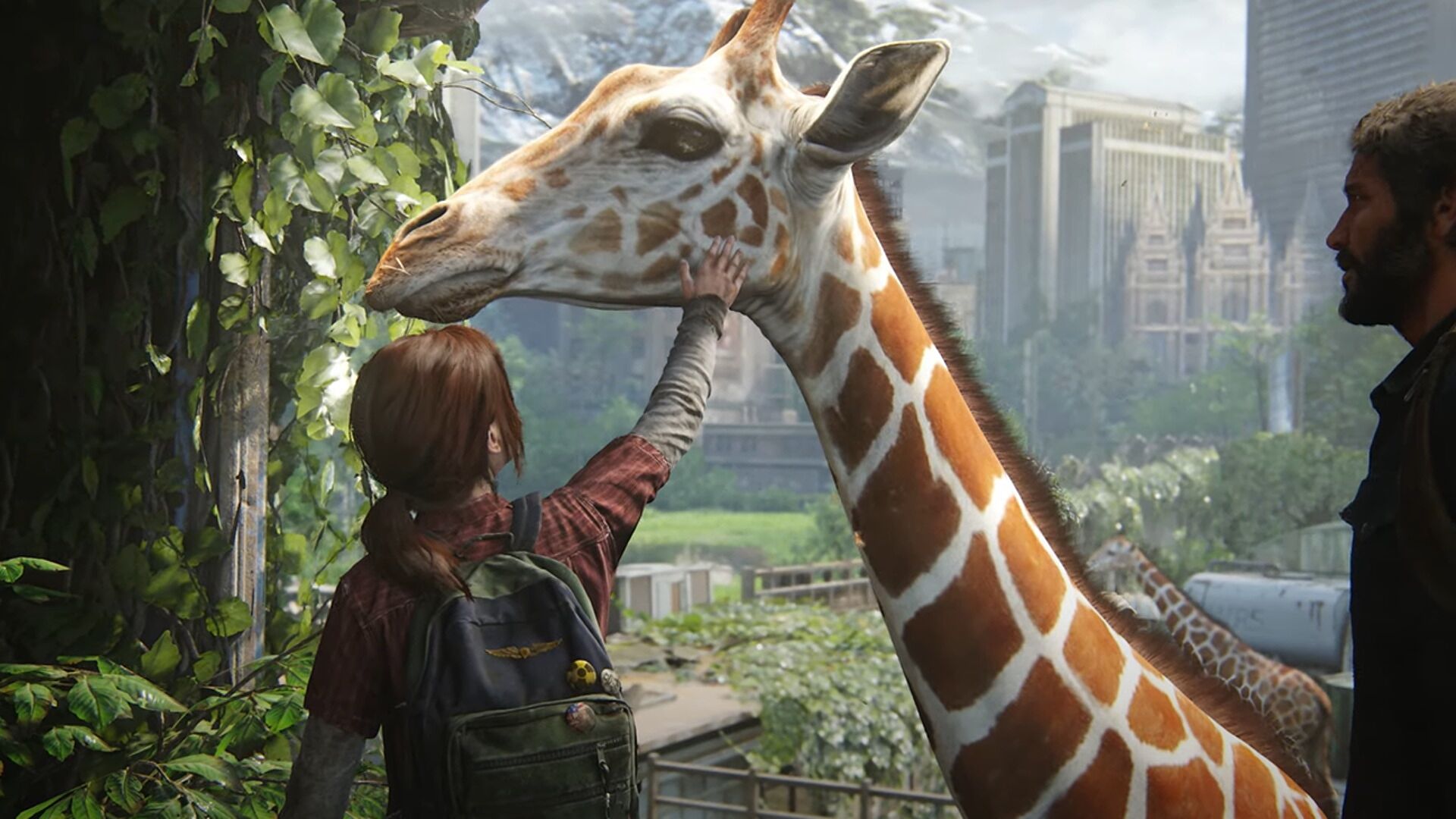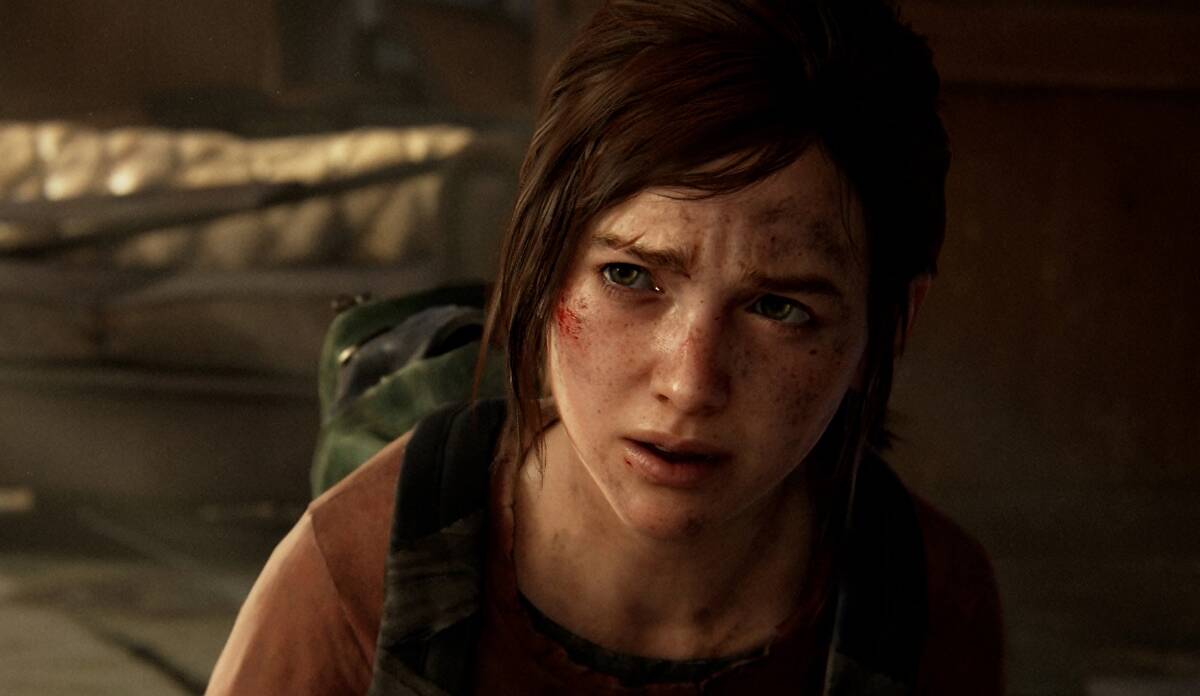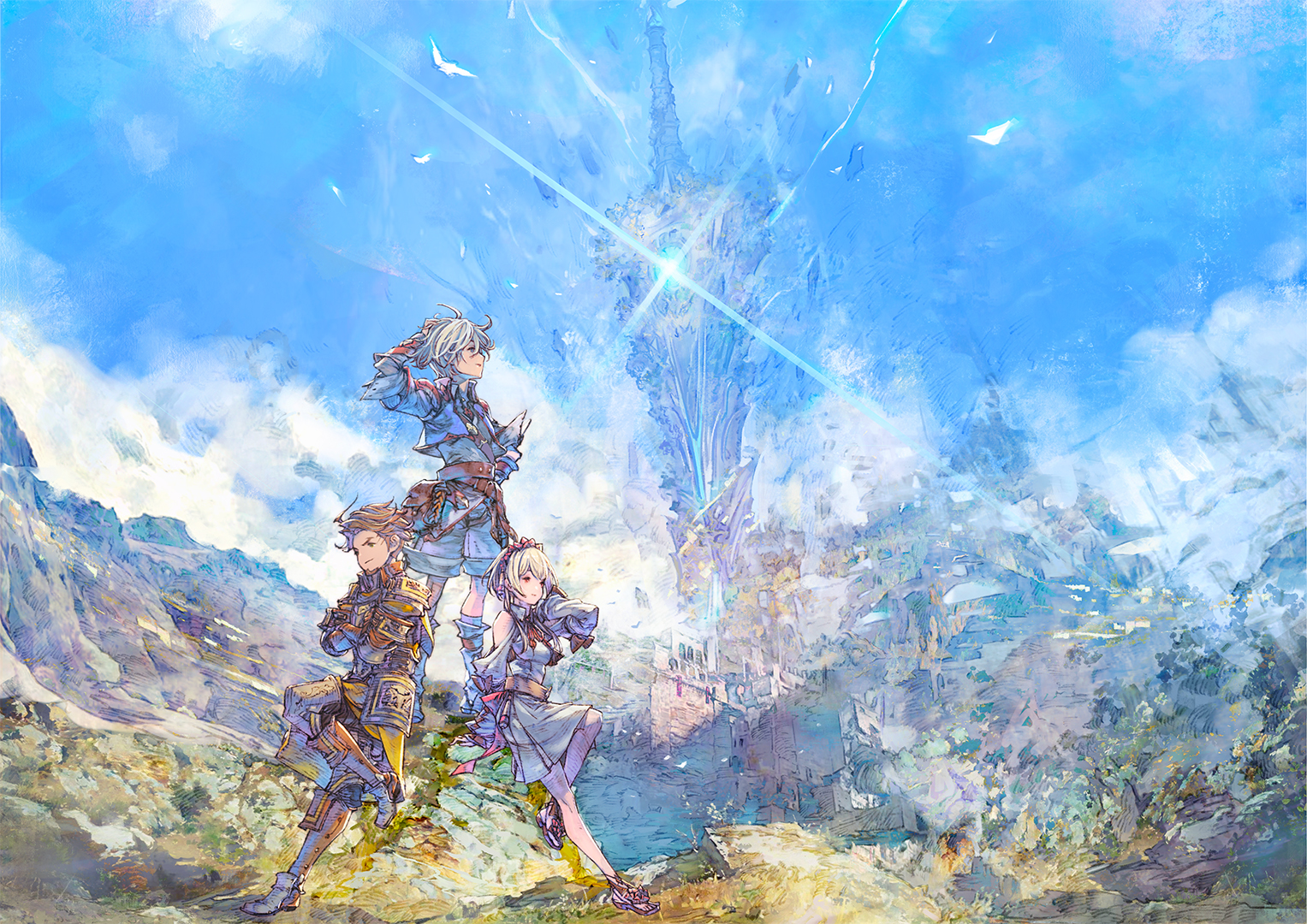Almost a decade ago, Sony published The Last Of Us on PlayStation 3. The sheer hyperbole that the game got was, in retrospect, silly. Empire even went as far as to say that the very cinematic game was comparable to Citizen Kane. Of course, since then, Sony alone has published at least a half dozen “Citizen Kane of video games”, ranging from God of War to Ghost of Tsushima and the sequel to this very series. Meanwhile, other publishers have also published so many dozens of “Citizen Kane of video games” that accolade has lost all meaning now. Hopefully, people look at this remake/remaster/rewhatever with a bit more of a sober mindset.
The Last Of Us is not comparable to Citizen Kane. Or Shakespeare, The Mona Lisa, or any other great work of art. I said as much in my original review: It’s a blockbuster closer to a Bond film or The Avengers than Citizen Kane.
There’s nothing inherently wrong with that. I have to say that because people get this weird idea that if you don’t call a thing you find entertaining a “great work of art”, then you must hate it. That’s not how it works at all. Rather, it’s a good idea to understand that there are different drivers for art and blockbuster entertainment, and you’re doing both “sides” disfavour if you try to make them directly comparable. People flock to blockbusters for a reason. The world we inhabit is such a miserable place that escapism is a valuable service, and as replaying The Last Of Us here has reminded me, it is very good escapism. Textbook pacing, textbook performances, textbook attention to detail and execution. It’s textbook entertaining escapism.

But it’s not a great work of art. Rather than go over the argument again I’m just going to copy and paste from my original review, since this re-re-release doesn’t do anything new narratively or thematically: There’s nothing ambiguous about The Last Of Us. There is no meaning that isn’t spelled out in very well written, but very straightforward text. There are no emotions that we as players aren’t told to feel, and there’s no mystery about what’s going on in the game. There isn’t even the scathing social commentary that we see in some of the finest zombie movies of Romero’s, despite the game being, in part, a zombie narrative. The Last Of Us simply takes the darker ideas of those same zombie movies, throws in a surface-level dash of commentary on human nature found in Cormac McCarthy’s The Road, and presents it in a more palatable form than any of the inspirations that the game draws on.
This is the very definition of a blockbuster. The more ambiguity you work into a text, the more likely it is that people won’t “get it” and therefore a film, book, or game that is too “out there” will be ostracised. That naturally doesn’t fit with the economic models behind blockbusters, and so instead we as players are treated to something where every meaning and every message the game wants to convey is nicely spelled out to us.
This also plays out in the game’s design. Every step of the path that players follow is carefully constructed to keep them moving forward while presenting a nice variety of challenges and opportunities for empowerment. Broken down to its very core, The Last Of Us is no different to any other modern shooter where players are directed down a path and into a larger area with some enemies to overcome, and then directed down the next path, with little room for exploration.

On replaying The Last Of Us now I do notice, even more clearly, just how shallow the game is. How it manipulates emotions with excellent performances, rather than engage the brain by asking probing questions. It is, ultimately, a celebration of individualism, and therefore a very American story, but it simply depicts this as the natural order of things and never does anything to challenge or expand on the notion, as something like The Revenant does over in the world of cinema. The closest the game comes to a meaningful theme is the way it tends to juxtapose conflict with humans with conflict with the zombie-like monsters (by transitioning from one to the next, back-to-back, “level” to “level”), but that tends to come across as more of a contrivance to keep the gameplay fresh and varied well than any thematic effort.
And again, all of this is fine. Games don’t have to have the nihilism, existentialism and theological musings of a NieR Automata. Or a dissection of individualism as Kojima’s Death Stranding did (in many ways the “anti-Last of Us”, thematically speaking). A game like The Last Of Us can be the big popcorn thing it is, and we can celebrate it and relate to it on that level without it being a criticism of the thing. We just need to make sure that don’t conflate it with what it is, because when you do try and compare it to art, it comes off as second best. I’d rather not do it that disservice, personally.
As a remake, Naughty Dog has done a lot with the aesthetic side of things. It has been modernised visually, and takes full advantage of the PlayStation 5’s capabilities across lighting and detail. It’s been too many years since I played the original The Last Of Us, so I can’t remember the specifics about AI behaviour in the original game, but the other major “upgrade” in the remake was, apparently, that. From my perspective though, the most particularly impressive change has been the deep accessibility options that have been worked into the game. Sony has been a real champion and pioneered a lot of this accessibility stuff, and it deserves credit for what it has done to show other developers how it should be done.

Nine years on, The Last Of Us remains a very good game at what it aims to do, but here’s the rub and my really big problem with the game; this remake was never needed. This isn’t a case of reviving something that had been languishing on a discontinued console. You could already play The Last Of Us right now, on your PlayStation 5, via the PlayStation 4 remaster. That version still looks and plays perfectly fine, and I would go as far as to say that if a game really does “age” to the point that it needs a ground-up remake so soon after the original release, you should be asking yourself whether it was ever really artful. Truly impressive art is timeless. In making this remake, Sony’s effectively saying that its games become digital scrap in less than a decade.
I gave the original game a 5/5 score. This remake is much the same game – in fact, thanks to the better and broader accessibility options, it’s objectively even better! And yet I can’t in good conscience give score it – or recommend it – at all. This project is pure cynicism from all parties. The original is still readily available and playable on the PS5, meaning that Sony and Naughty Dog are actively undermining their own work to try and fill a release schedule void with something on the shelves. Given that the game was so enthusiastically compared to Citizen Kane by so many people that mistook “well-produced” for “art”, perhaps this time around people can instead take note that Citizen Kane is now 81 years old this year, and as a true masterpiece, it never needed a remake.










Love your review ! I’m glad you didn’t score it actually.
Though as usual, I would be way harsher than you on the “fun” side of things, as even seen as a plain roller coaster I find TLOU to be really lackluster. Sure it has the greatest production values a video game can have, but its story didn’t compell me at all, quite the opposite, while the interactive actions required to beat it were often boring (the loot, or how you’re able to stealth kill every human opponent of an area by choking them one by one in the same spot) or illogical (ennemis shoot you with unlimited ammunitions in a world where ressources are supposed to be scarce but at the same time, when killed, they only drop bullets depending on how much you carry yourself…).
To say the truth I was so very frustrated by the dithyrambic reviews on this one. Sure it’s a game put together very competently and it lets itself play well, but just as much as any big budget title from its era. Just because it acts mature and is technically polished, then it becomes the best game ever, the Citizen Kane of games. I so don’t get it ! I never did.
If I had to make hypothesis. I’d say it rubbed the video games social group the very nice way. First its technical prowess was always going to work in its favour, because a lot of video game enthusiasts are tech enthusiasts. They just want the best graphics, the best visual achievements on their machine and Naughty Dog gave them just that. Second, I think the video game social group are made of people who suffered from how badly video games were perceived when they first fell in love with this media. Violent, immature, stupid… Video games had a terrible reputation some time ago, and it made the people who played them look bad. So what happens now when a game like TLOU releases and shines *mature* and *artistic* ? *Respectable* ? *Serious* ? It makes video game enthusiasts happy and relieved, all too happy to be able to brandish a new object that proves that “video games are art, it can tell sensible stories, look at how subtle, nuanced and mature this story looks with Joel and Elly”. This is the way I see it. I see reparation when I read such raving reviews regarding TLOU. This is the only way I understand because, I’m such a great fan of entertainment and in no way, NO WAY, do I see TLOU as a great piece of entertainment. Sure it’s not Citizen Kane, but how could it be when it’s not even Avengers Endgame…
“Though as usual, I would be way harsher than you on the “fun” side of things, as even seen as a plain roller coaster I find TLOU to be really lackluster.”
That’s a totally fair take. For my part I went into this not expecting to bother finishing it, but I did, in fact, bother finishing it, so that tells me it has something, and it certainly wasn’t the narrative. But I do understand and agree with what you’re saying overall. Totally legitimate criticisms of the game.
Now, I have to disagree with what you’re saying about remasters and them not being works of art.
Citizen Kane has been rereleased many times in higher resolutions, and no doubt some actual work went into making those. If a remake inherently means that the art is invalid, then so too Citizen Kane has been rendered invalid because it’s been made crisper and clearer than it was originally.
Now, I understand your point above blockbusters not being fine art, but I think redoing a games graphics is similar in concept to Citizen’s Kane’s 4K rerelease. It speaks to the different nature of games. The remake was exactly the same.
For Last of Us, it probably didn’t really need this yet, I agree, but it’s more of a “too soon” matter than a “at all” matter.
On a different, but similar note, Persona’s Royal and Golden releases don’t invalidate their art either, and that’s a more extreme overhaul in many ways than this.
I have very big issues with the Persona 5/Royal deal though, so I agree that they’re similar, I just don’t think either is appropriate. The opening paragraph of my review, for example: “in video games, the push towards giving players ever more content could result in something losing so much of its value simply because the developers lost control of it.” It’s a fine game (I scored it 4.5/5), but that’s not me necessarily liking what they did with it.
I don’t have as much of an issue with remasters. Making a game available on current platforms is a good thing and that might mean the game needs to be up-resolutioned or retouched. Shin Megami Tensei 3, for example. That’s a good thing because it ensures that the original creative vision remains. And that’s what people have done with Citizen Kane.
Remakes, though? They usually bother me. I don’t mind a remake if it completely changes the game (FFVII Remake is almost an anti-FFVII for example), because that’s adding to the conversation about the game. But a remake that is just there to put the exact same game in a current (though not future-proof) engine? Nah. There are far better ways to allocate developer resources. They could have remastered Tokyo Jungle and made it playable on something, for example.
A waste of resources sure. I’m arguing there, I don’t think this remake is needed at all (as opposed to say Demon’s Souls), but I I don’t think that invalidates (or validates) it’s potential as art as all. I don’t think a good argument could be made that the original creative vision isn’t here anymore.
But I definitely agree that this didn’t need to made. So we agree on a lot with it.
I usually don’t play blockbusters, but I recently played Dead Space 2 – now my standards have been raised too high.
My brother just played Guardians of the Galaxy on gamepass. He also had his fill of blockbusters. We just will not be playing a textbook game when we’ve been playing something better!
returning for a second comment now that I’ve actually played the game, and I genuinely disagree with you about how shallow the game is.
The ending is an extremely interesting question. It’s one of selfish love.
*SPOILERS*
*SPOILERS*
I think Joel did it for himself. He knew it probably wasn’t what Ellie wanted, and it probably wasn’t the right thing in general.
You say you don’t feel anything the game doesn’t want you to, but the ending so very ambiguous and causes a lot of arguments.
The game never just tells me Joel is a bad guy who ultimately does everything for himself. In fact a lot of people feel it isn’t. You say it’s just American hyper individualism, and while I don’t see the first part outside of maybe many people’s interpretations, it very much begs questions about when individualism turns love into something selfish.
Joel couldn’t stand the idea of losing Ellie, so he created a world though lies and killing where she would still be his.
I think many people missed the point because I what Joel did was so understandable. Throughout the game he’s shown to be a very selfish person, and with the end, it’s still hard to say that ever changed. Which is a huge divergence and challenge on the normal story of someone overcoming his own needs to care for someone else.
Yes indeed, Jaz007, exactly right. This is not the typical American Hero story, it is much more complicated than most people think. That’s why part two, which elaborates on this point, pissed so many people off.
Don’t get me wrong. I’m not saying that The Last Of Us doesn’t have a story. It does. And yes, it’s a story that doesn’t follow the standard hero story.
It’s still pretty surface-level stuff though. Joel being selfish and making a selfish decision at the end is the surface-level plot, and the narrative doesn’t really put forward any kind of deeper thoughts about any of that. Contrast to NieR: Automata, which is a thesis-level dissertation on the self, the meaning and nature of God, existentialism, nihilism, and the tension between humanity and intelligent synthetics, and all of that sits well beyond the straightforward plot of the game. You walk away from NieR Automata and want to read up on philosophy, and that’s the difference between something that is shallow, and something that is deep.
So really, when I talk about when I say something is “shallow”. Does it dig at anything beyond the surface level? Having played TLOU several times now, I don’t think it does. I’ve also not seen anyone really try and argue that it does.
But to be really clear here, I think it’s a perfectly good piece of blockbuster material and I would think that if they tried to make it deep it would lose a lot of its appeal. This isn’t a criticism. All I want is for people in this industry to better understand the difference. That Marvel isn’t Kubrick. That The Hunger Games isn’t Shakespeare. When we better understand the difference between a shallow blockbuster and a deeper work of art, then we can appreciate both. Because they’re both equally valid. I play a blockbuster to be entertained. I play a work of art because I want to be intellectually challenged.
I hope this helps to clarify my position on TLOU!